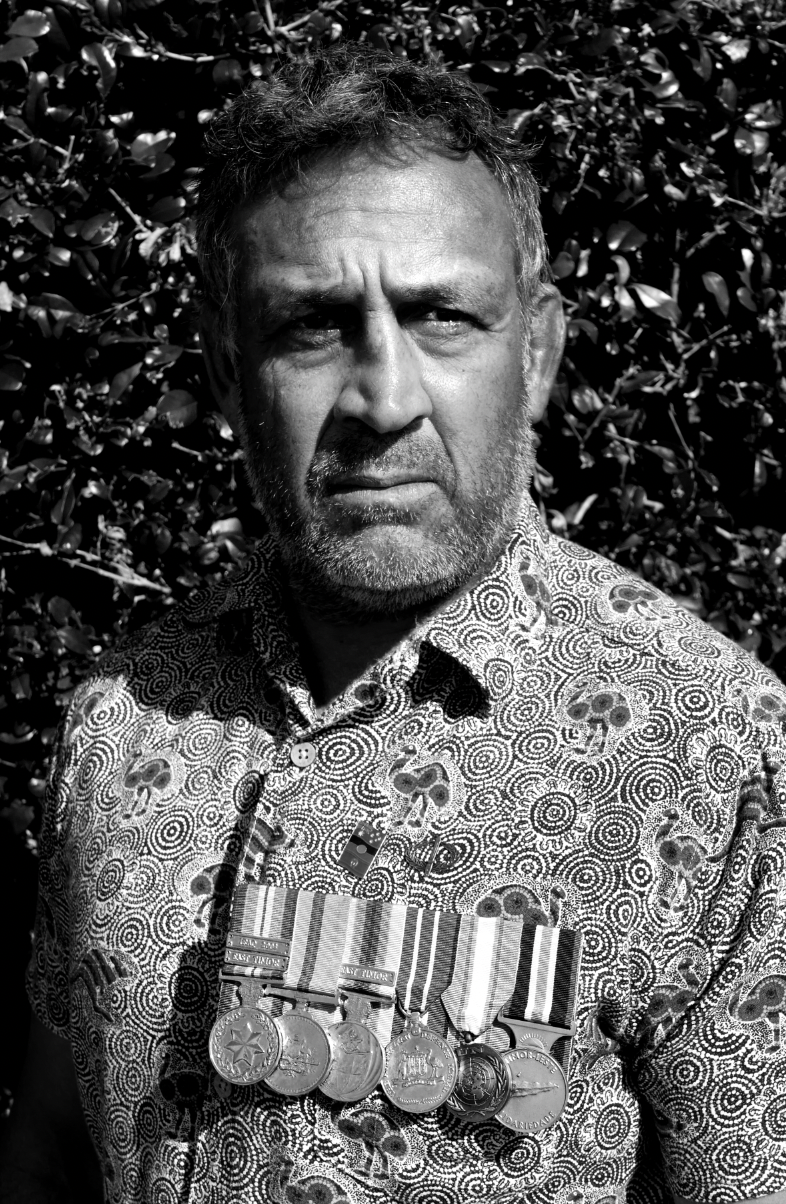Denis Smallwood
Bundjalung man
Corporal
1st and 6th Battalions, Royal Australian Regiment
Royal Australian Infantry Corps
Australian Army
Medals
Australian Active Service Medal with clasps East Timor and Iraq 2003
Iraq Medal
Australian Service Medal with clasp East Timor
Australian Defence Medal
United Nations Medal East Timor UNTAET
Medalha Solidariedade de Timor-Leste (Timor-Leste Solidarity Medal)
Firstly, I pay respect to our traditional Elders and ancestors and especially pay respect to fellow countrymen and countrywomen past and present who have served this great country. I was born in Sydney to a proud father from Burdekin, who was a Bundjalung man, and a loving non-aboriginal mother from La Perouse. When I was one year old, they took me and my three brothers to live and be raised on the lovely River Tweed, Tweed Heads on Bundjalung country. My dad passed away when I was 13, so I left school in the first term of year 12 to find employment so I could help support my mum and brothers. Over the following years, I had a few different jobs, but nothing set in concrete. I wanted a more secure job and decided to enlist in the Australian Army in March 1998. On completion of basic training at Kapooka, I continued my training as a Rifleman in the Infantry Corps after completing Initial Employment Training. It was a real culture shock and an eye-opener for me, but this young black fulla was ready to be a warrior. But learning to sweat hard in training meant to bleed easy in battle. My first posting was 1RAR Townsville on my Pop’s country, where I did my first deployment to East Timor. After 5 years there, I was then posted to 6 RAR Brisbane, where I did my 2nd and 3rd trips to East Timor and 2 deployments to Iraq. Both theatres were totally different missions. Timor involved lower-level operations, lots of patrolling in the humid jungle, humping up and down hills, along with hearts and mind green role tasks. Iraq in early 2004 and 2008 was a more intense, highly dangerous operation, and combating IEDs (improvised explosive devices) was a different war game as we had to learn and adapt daily.
